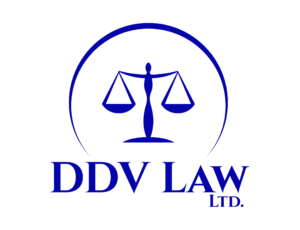In business valuation, a defined set of procedures is used to estimate how much an owner’s interest in a business is worth. There are a number of valuation techniques that can be utilized to determine a fair valuation. Here are just a few reasons why your small business might be valued:
- Selling, merging, or dissolving your business
- Buying out a partner’s interest in the company
- Litigation like divorce proceedings forces you to sell
- Tax purposes
- Raising capital for business expansion
- Filing for a Small Business Administration (SBA) loan
- Establishing a buy-in price when taking on new partners
- Identifying your business’s strengths and weaknesses to grow company value
- Valuation for retirement or estate planning
What is the Role of a Business Valuation Specialist?
Business valuation specialists (Certified Valuation Analysts or CVA) are trained to value private and public companies. Generally speaking, these analysts quantify a company’s profitability, intangible and tangible assets, and future cash flows. Before hiring a CVA, you can become familiar with the valuation process using a business valuation calculator and get an idea of the process and how much your business is worth.
Begin with collecting your financial documents. By law, you will need to produce profit and loss statements for the past three years. P&L statements also help a potential buyer see your income. All distribution and supplier contracts need to be made available to itemize the different materials that supply your business. You will need an up-to-date balance sheet, including items like company inventories and prepaid expenses. Be sure to include equipment and intangible assets. Cash flow statements that show operating activities and other critical business metrics and tax returns for two to three years will also help determine the value of your business. If your business operates internationally, you will need to become familiar with the appropriate country or group of countries (such as the EU) privacy laws and regulations.
What Are Considered Intangible Assets for a Small Business?
Intangible assets (non-physical) add value to your company and include patents, trademarks, copyrights, and equity in your brand. Some other intangible assets to consider for your business valuation are:
- Patented technology such as databases, computer software, domain names, and trade secrets are part of your business valuation. Any patents you own grants legal rights to you, the inventor, and affect the valuation of your business.
- Copyrights typically depend on the kind of company being sold as they usually deal with musical works, pictures, photographs, and audiovisual items.
- The different agreements and contracts, including license agreements, broadcasting permits, and right of way and use rights.
- Goodwill is considered one of the most common types of intangible assets as it is the premium paid for the market value a company already has.
Aside from your financial documents, other essential documents can help determine your business’s value. Balance sheets and income statements and any other forecasts and projections are helpful, as are strategic organization documents and business plans. Also include intellectual capital that falls into four broad categories: social and human capital, structural and customer capital. Tax returns for business valuation require two years’ worth; however, you may need three years to deal with an SBA loan. Also, a sole proprietorship may need to include personal tax returns.
What Are Common Valuation Methods a Small Business Can Utilize?
More than ten valuation methods exist to determine your small business’s value and choosing the proper valuation method depends on varied factors and may change the outcome of your valuation. That is why it is best to seek the services of a certified valuation analyst. The three most common methods used in small business valuation are:
- Assets after Debt – This method is a simple market approach that takes the value of what a company owns and subtracts what it owes.
- Seller’s Discretionary Earnings or SDE – This method calculates the business’s net earnings before taxes for the year. Then adds that number to your personal draw (what you paid yourself) and adds that number to all non-essential expenses over that year, and finally, deducts liabilities such as debts or unpaid bills. SDE is a solid valuation technique for service companies.
- Market Comparison – This method employs market research to compare what sells in their industry and location, similar to “comp houses” used in real estate.
Of course, you can employ any combination of valuation methods rather than going with one. The more methods you use, the higher the cost of the valuation process. The cost to get your small business valuation ranges between two thousand to thirty thousand dollars. If you have good records available and your business is small, you can do a lot of the preparation work and save some money.
The reason you are determining a valuation for your small business may define how seriously you approach the undertaking. Using a calculator and determining valuation yourself may be appropriate to find ways to grow your company but inappropriate in the dissolution of a marriage. However, it is always a good idea to know the value of your small business in this competitive business world.
When you are ready to take the next step, contact our Chicago area offices by calling 312-878-0155. We have three convenient locations to assist you.

